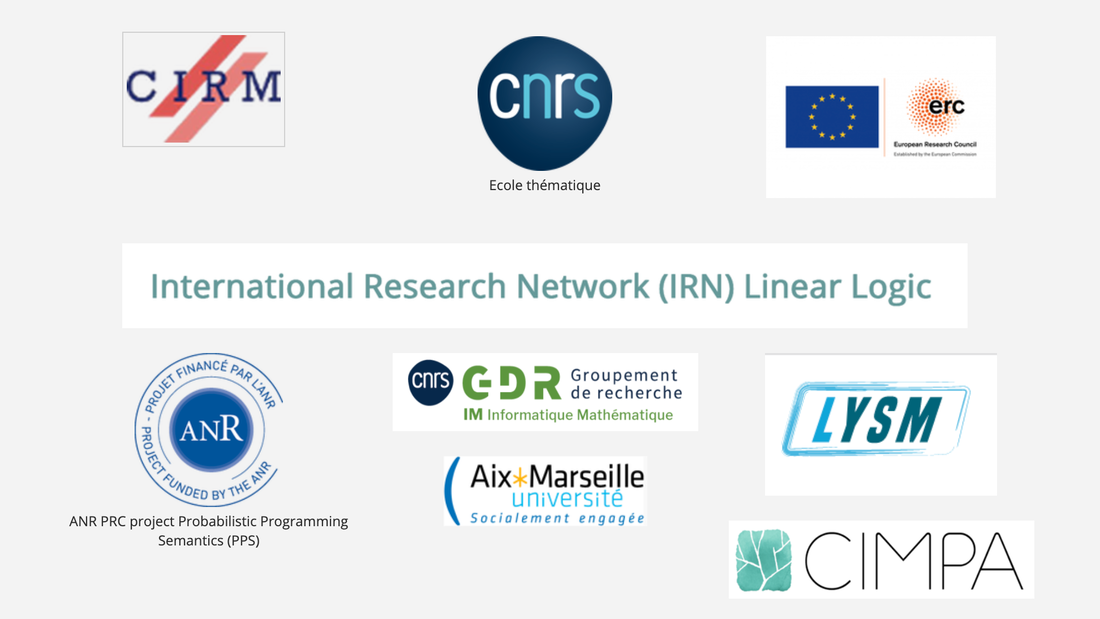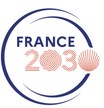Logic and higher structures
Logique et structures supérieures
21 – 25 February 2022
|
Scientific Committee
Comité scientifique Thierry Coquand (University of Gothenburg) |
Organizing Committee
Comité d’organisation Dimitri Ara (Aix-Marseille Université) |
|
Voevodsky’s univalent foundations program has revealed deep connections between logic and homotopy theory, in particular via higher category theory. The goal of this week is to explore these interactions, bringing together mathematicians from the communities of type theory, higher rewriting, higher category theory and homotopy theory.
Two mini-courses will be given: the first one will present homotopy type theory and Voevodsky’s univalent foundations program; the second one will provide an introduction to the theory of higher categories, aiming in particular at models of homotopy type theory. A limited number of slots will be available for participants to present their work related to the conference in short contributed talks. |
Le programme de fondements univalents de Voevodsky a révélé de profonds liens entre la logique et la théorie de l’homotopie, notamment par l’intermédiaire de la théorie des catégories supérieures. Le but de cette semaine est d’explorer ces interactions, en rassemblant des mathématiciennes et mathématiciens issus des communautés de la théorie des types, de la réécriture de dimension supérieure, de la théorie des catégories supérieures et de la théorie de l’homotopie.
Deux mini-cours seront donnés : le premier présentera la théorie homotopique des types et le programme de fondements univalents de Voevodsky ; le second fournira une introduction à la théorie des catégories supérieures, notamment en direction des modèles de la théorie homotopique des types. Des séances d’exposés courts permettront à quelques participants de présenter leurs travaux en lien avec la conférence. |
Emily Riehl (Johns Hopkins University) On the ∞-topos semantics of homotopy type theory
Egbert Rijke (University of Ljubljana) Daily applications of the univalence
Speakers
Thibaut Benjamin (CEA LIST) Weak ω-categories as models of a type theory
Ulrik Buchholtz (Technische Universität Darmstadt) Update on semisimplicial types in homotopy type theory
Cameron Calk (LIX) Abstract strategies and formal coherence
Greta Coraglia (University of Genoa) A 2-categorical representation of deduction
Eric Finster (University of Birmingham) Remarks on opetopic types
Jarl G. Taxerås Flaten (University of Western Ontario) Internally injective modules in higher toposes
Andrea Gagna (Czech Academy of Sciences) Fibrations of (∞, 2)-categories
Amar Hadzihasanovic (Tallinn University of Technology) Rewriting in weak higher categories
Rune Haugseng (Norwegian University of Science and Tech) ∞-operads as analytic monads
Joachim Kock (Universitat Autònoma de Barcelona) Petri nets, processes, and Segal spaces
Nicolai Kraus (University of Nottingham) Identities in higher categories
Lyne Moser (Max Planck Institute of Mathematics) Defining limits in (∞,2)-categories
Viktoriya Ozornova (Ruhr-University Bochum) Complicial sets and suspensions
Simona Paoli (University of Aberdeen) Fat delta, pseudofunctors and weak units
Christian Sattler (Chalmers University of Technology) Filtered colimits and free groups on sets
Sam Speight (University of Oxford) Groupoidal Realizability: the Topological BHK Interpretation of Intensional Type Theory
Jonathan Weinberger (University of Birmingham) Synthetic fibered (∞,1)-category theory






